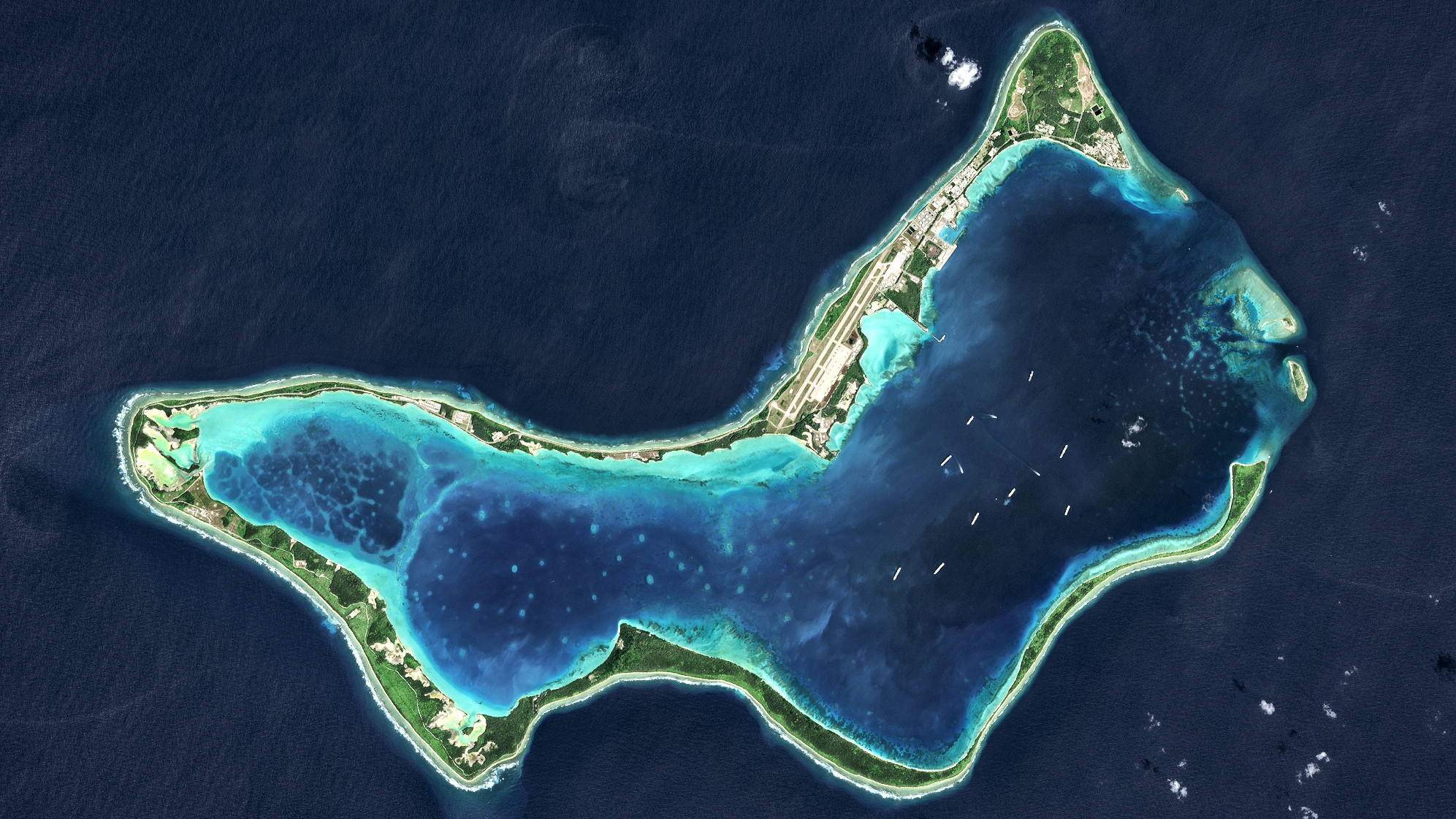UK cedes Chagos Islands to Mauritius, minus US base
Mauritius has long argued it was forced to give up the islands in 1965 in return for independence from Britain


A free daily email with the biggest news stories of the day – and the best features from TheWeek.com
You are now subscribed
Your newsletter sign-up was successful
What happened
Britain said Thursday it would cede sovereignty over the Chagos Islands, an archipelago of more than 60 small islands in the Indian Ocean, to Mauritius but retain control of Diego Garcia, the largest of the islands and home to a strategically important U.S.-U.K. military base, for "an initial period" of 99 years. The Chagos Islands lie 1,250 miles northeast of Mauritius, toward India. Mauritius has long argued it was forced to give up the cluster of islands in 1965 in return for its own independence from Britain in 1968.
Who said what
British Prime Minister Keir Starmer and Mauritian Prime Minister Pravind Jugnauth welcomed the "historic political agreement." They said in a joint statement that the deal, negotiated over two years, reflected their commitments to "the rule of law" and the "long-term, secure and effective operation of the existing base on Diego Garcia." Jugnauth said in a televised speech that "56 years after our independence, the decolonization is finally complete."
Britain had faced "rising diplomatic isolation" over its claim to what it called the British Indian Ocean Territory (BIOT) and others "called its 'last colony in Africa,'" the BBC said. The Chagos Islands were "one of the very last pieces" of Britain's "global empire," and if it relinquished them "reluctantly," it also did so "peacefully and legally."
What next?
Under the agreement, which must still be signed off in a treaty, Britain will pay Mauritius rent, infrastructure investments and a "resettlement" fund for the descendants of the 1,500 Chagossians kicked off the islands in the 1970s to make way for the Diego Garcia base.
The Week
Escape your echo chamber. Get the facts behind the news, plus analysis from multiple perspectives.

Sign up for The Week's Free Newsletters
From our morning news briefing to a weekly Good News Newsletter, get the best of The Week delivered directly to your inbox.
From our morning news briefing to a weekly Good News Newsletter, get the best of The Week delivered directly to your inbox.
A free daily email with the biggest news stories of the day – and the best features from TheWeek.com
Peter has worked as a news and culture writer and editor at The Week since the site's launch in 2008. He covers politics, world affairs, religion and cultural currents. His journalism career began as a copy editor at a financial newswire and has included editorial positions at The New York Times Magazine, Facts on File, and Oregon State University.
-
 6 of the world’s most accessible destinations
6 of the world’s most accessible destinationsThe Week Recommends Experience all of Berlin, Singapore and Sydney
-
 How the FCC’s ‘equal time’ rule works
How the FCC’s ‘equal time’ rule worksIn the Spotlight The law is at the heart of the Colbert-CBS conflict
-
 What is the endgame in the DHS shutdown?
What is the endgame in the DHS shutdown?Today’s Big Question Democrats want to rein in ICE’s immigration crackdown
-
 Trump links funding to name on Penn Station
Trump links funding to name on Penn StationSpeed Read Trump “can restart the funding with a snap of his fingers,” a Schumer insider said
-
 Trump reclassifies 50,000 federal jobs to ease firings
Trump reclassifies 50,000 federal jobs to ease firingsSpeed Read The rule strips longstanding job protections from federal workers
-
 Supreme Court upholds California gerrymander
Supreme Court upholds California gerrymanderSpeed Read The emergency docket order had no dissents from the court
-
 700 ICE agents exit Twin Cities amid legal chaos
700 ICE agents exit Twin Cities amid legal chaosSpeed Read More than 2,000 agents remain in the region
-
 Vietnam’s ‘balancing act’ with the US, China and Europe
Vietnam’s ‘balancing act’ with the US, China and EuropeIn the Spotlight Despite decades of ‘steadily improving relations’, Hanoi is still ‘deeply suspicious’ of the US as it tries to ‘diversify’ its options
-
 Trump demands $1B from Harvard, deepening feud
Trump demands $1B from Harvard, deepening feudSpeed Read Trump has continually gone after the university during his second term
-
 House ends brief shutdown, tees up ICE showdown
House ends brief shutdown, tees up ICE showdownSpeed Read Numerous Democrats joined most Republicans in voting yes
-
 The Mandelson files: Labour Svengali’s parting gift to Starmer
The Mandelson files: Labour Svengali’s parting gift to StarmerThe Explainer Texts and emails about Mandelson’s appointment as US ambassador could fuel biggest political scandal ‘for a generation’
